Notion Alternatives for CRM [UPDATED 2024]
![Notion Alternatives for CRM [UPDATED 2024]](/blog/content/images/size/w960/2021/05/Notion-alternatives-personal-CRM.png)
Update from the author: we’ve updated the product information, and the list of best alternatives to be current for 2024.
Frustrated with Notion as a CRM? Here are some of the best alternatives.
Notion is a flexible tool that provides a powerful and versatile note-taking experience. However, as a relationship manager, it lacks out-of-the-box features and workflows you might expect from a CRM.
For example, CSV imports, social media integrations, and reminders are a few features commonly found in CRM solutions which can’t be found in Notion.
Here are a few CRM alternatives that you may want to consider:
Dex
Dex is a personal CRM that helps you stay in touch, remember where you left off, and build stronger relationships. Dex has a robust set of features and integrates seamlessly with social networks like LinkedIn and Facebook. It’s available as a Browser Extension, mobile app, and web application.
Pros:
- Integrated with social media (LinkedIn, Facebook, Twitter, Instagram)
- Automated keep-in-touch reminders that update with last interaction
- Easy-to-use, intuitive user interface accessible on on either mobile or desktop
- Context and synced Google Calendars can show you where you left off.
Cons:
- Lack of direct email integration
- Lacks team & sales pipeline features
- Free version has limited number of custom fields and features
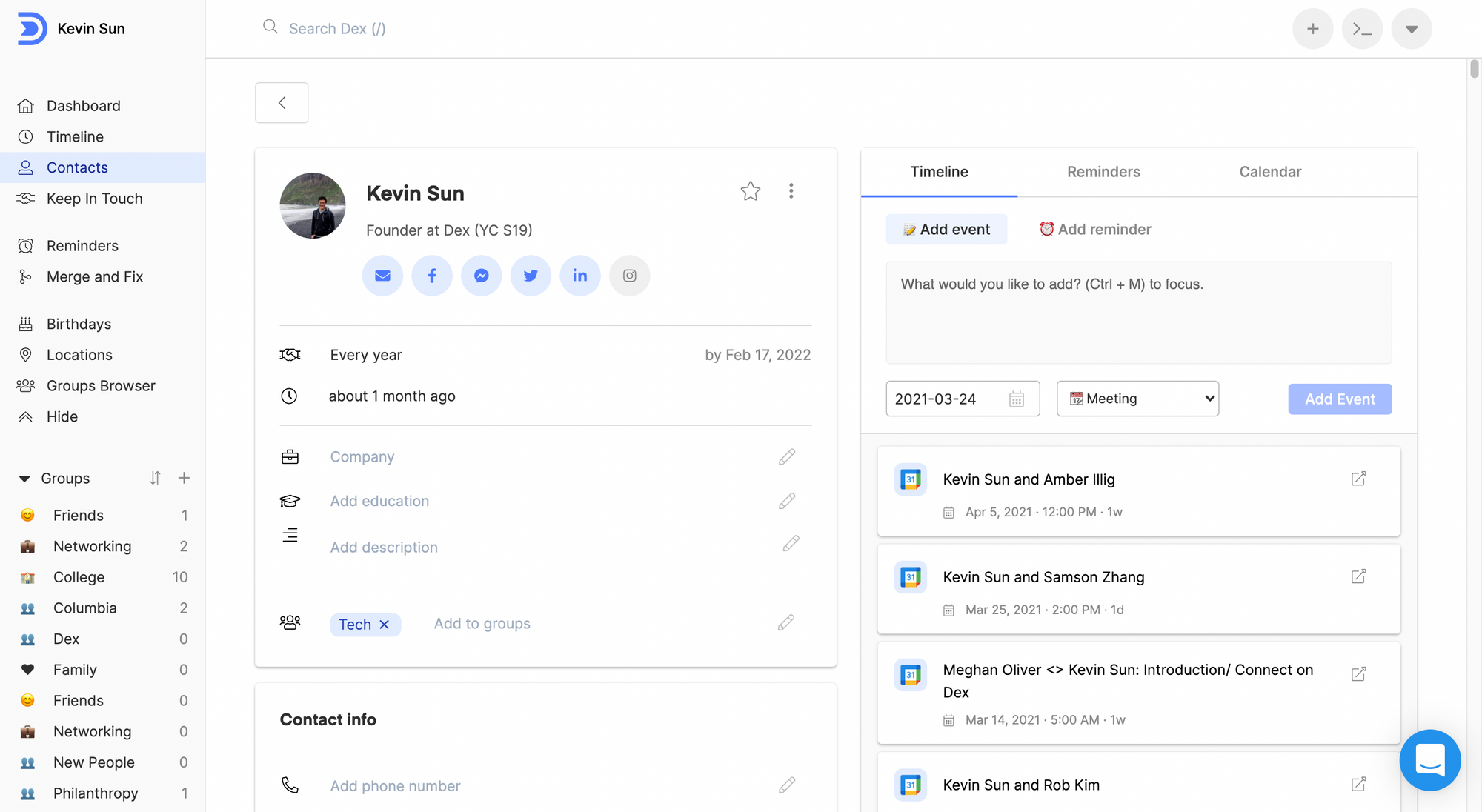
Airtable
Airtable is a powerful data workspace. One of the reasons why Airtable works well is it’s flexibility: all types of information can be stored in Airtable’s repertoire of spreadsheets--including contact names, roles and other details that are essential in a CRM.
In addition, Airtable’s user interface supports collaboration, automation, and includes the ability to customize your data workflow.
Pros:
- Flexibility across multiple functions (database management, CRM, data analysis)
- Easy-to-understand and familiar table interface
- Powerful API integrations with other applications
- Collaboration capabilities
Cons:
- Expensive at scale
- Requires manual input
- Requires involved integration setup for reminders
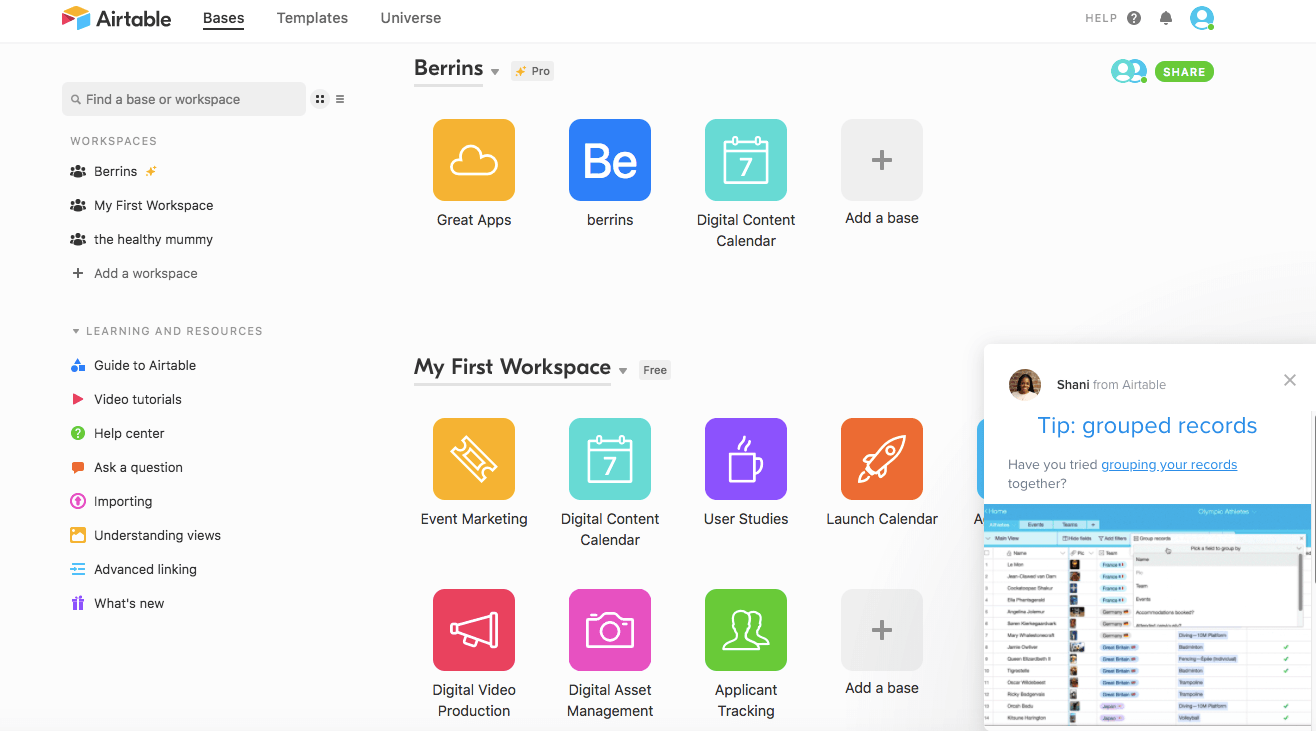
Excel/Google Spreadsheets
Google spreadsheets and Microsoft Excel are great as basic alternatives to Notion for relationship management. Why? Because they have a simple, easy-to-use interface that is understandable and familiar to all.
Where Notion doubles as a note-taking tool, task list, interactive board, and much more, spreadsheets are easy to understand, and have much a smaller learning curve for most users.
Pros:
- Complete flexibility: any column can be customized for a contact
- Familiar tabular interface
- Free (Google Sheets), or potentially already paid for by a school/employer
Cons:
- Manual process of adding information
- No straightforward mobile experience
- Difficult to keep up with
- Limited ability to collaborate (for Excel)
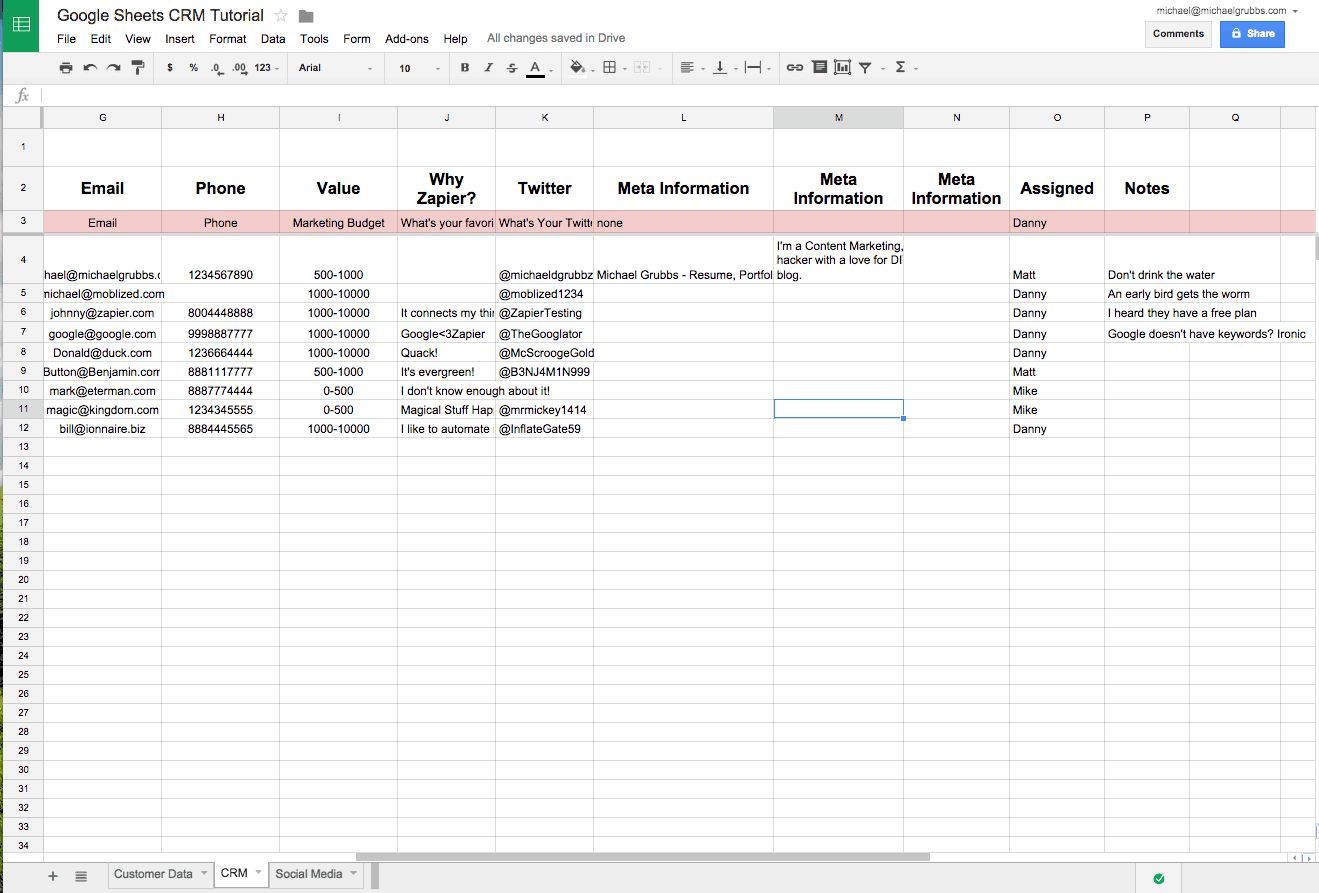
Hubspot
Hubspot is a CRM solution with a broad feature focused around Marketing Hub, which allows you to track and manage contacts, oversee tasks, and create deals.
Hubspot is generally marketed towards businesses and is ideal for salespeople who are looking for an alternative to more complex systems like Salesforce.
Pros:
- Free version is very generous and comes with robust functionality
- Can handle many contacts and large amounts of data
- Useful for tracking companies
- Integrated mobile app
Cons:
- Manual information input
- Time-consuming to keep up with, unless part of a sales workflow
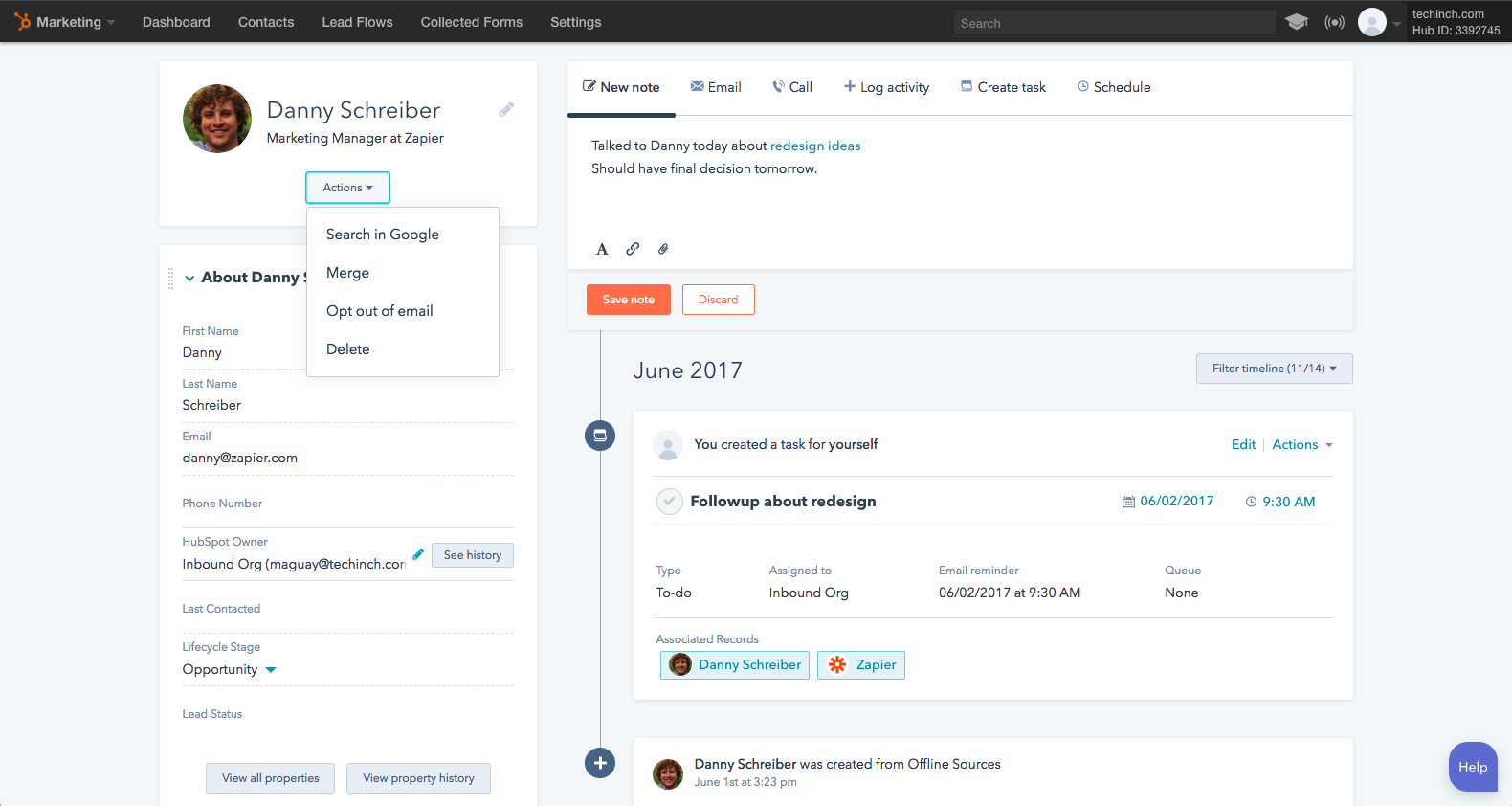
Pipedrive
Pipedrive is a convenient, easy-to-use CRM that comes with an intuitive user interface. Like Hubspot, it comes with many features intended for marketing and sales processes.
As the name would suggest, Pipedrive makes it easy to manage sales and opportunity pipelines, especially for small to midsize businesses. By providing users with the ability to retrace deals and conversations throughout their dynamic timeline, Pipedrive is great for creating business opportunities for users looking to expand their business productivity.
Pros:
- Easy to track sales and opportunities
- Timeline view makes visualizing events easy
Cons:
- Manual timeline, scheduling and contact information input
- Expensive for full access to enterprise software ($99/mo)
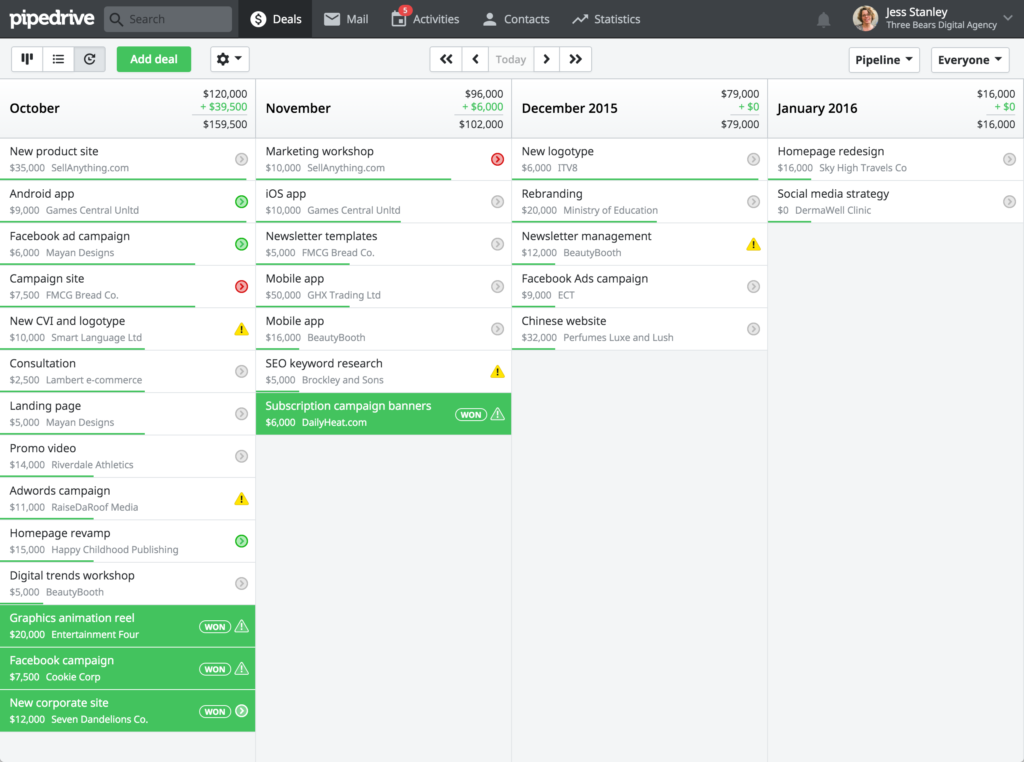
Copper
Copper is an integrated personal CRM that meshes nicely with Google’s productivity environment (G Suite). If you’re a heavy Gmail user, Copper makes it easy to use CRM.
With Copper, contacts from your Google contacts and mail can be added directly into your CRM, making it seamless to transition from an email thread to CRM Lastly, Copper also has useful features such as letting you know the number of interactions you have with contacts and the ability to log emails, phone calls, and add notes to meetings in Google Calendar
Pros:
- Complete integration with G-suite
- Fully free trial for 14 days
- Automated recurring tasks and notifications
Cons:
- Expensive monthly plans for professional use ($59/mo)
- Integrates well with G Suite but not other sources.
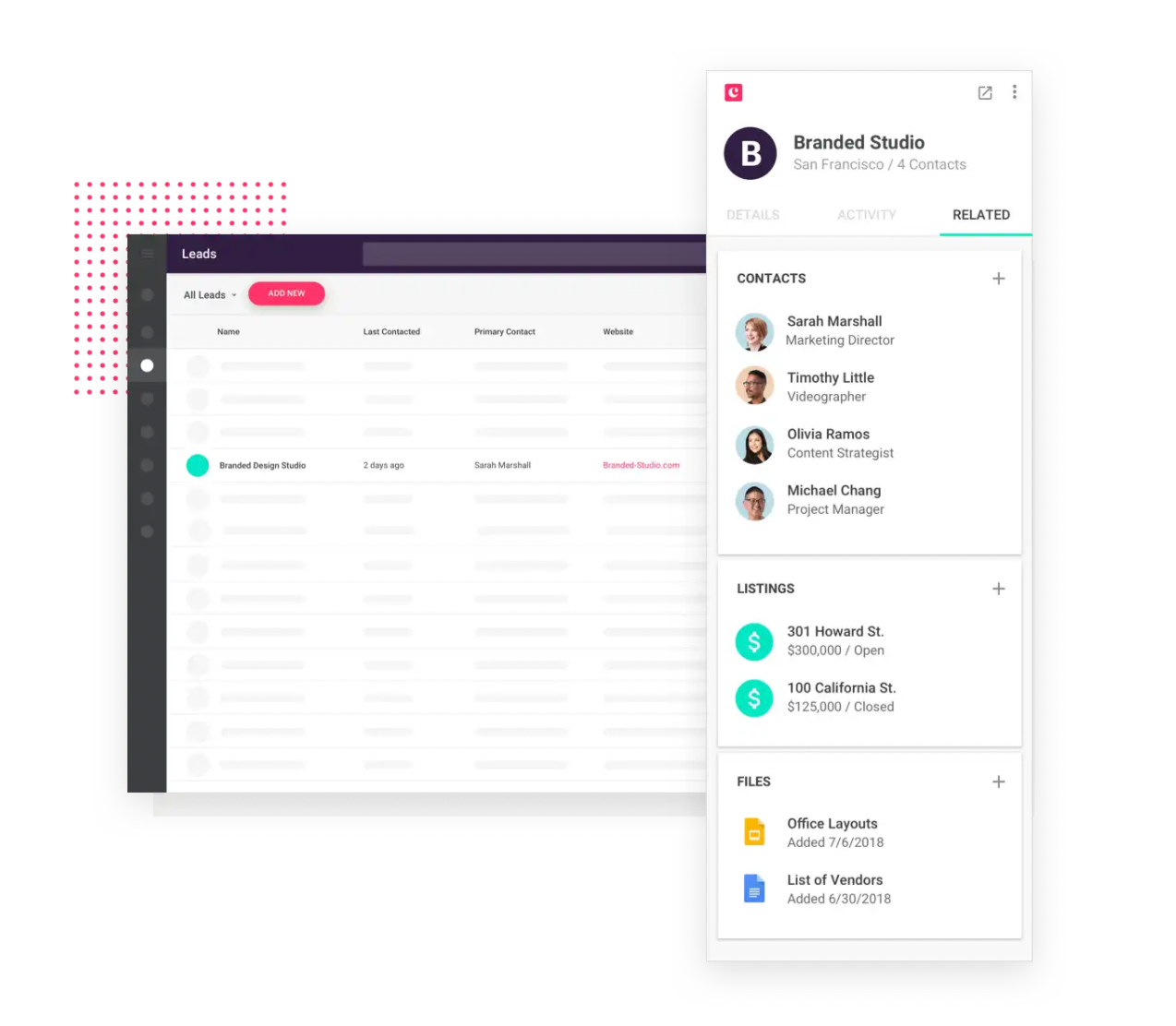
Summary
Tools for managing relationships are designed to be tailored and offer a particular solution, whether it's for keeping tabs on customer prospects, sales, or the personal and professional relationships you've established.
Notion is an all-in-one, jack-of-all-trades software that is flexible but isn't designed to address specific user needs like other CRMs. If you have the time to configure, personalize, and manually maintain all your records, Notion could be a good fit.
For those looking for an easier solution out-of-the-box, apps such as Dex, Copper, or any of the above suggestions may be a better fit. If you're reading this, you know that managing relationships is important to either you or your business. Start taking initiative with your relationships today!
